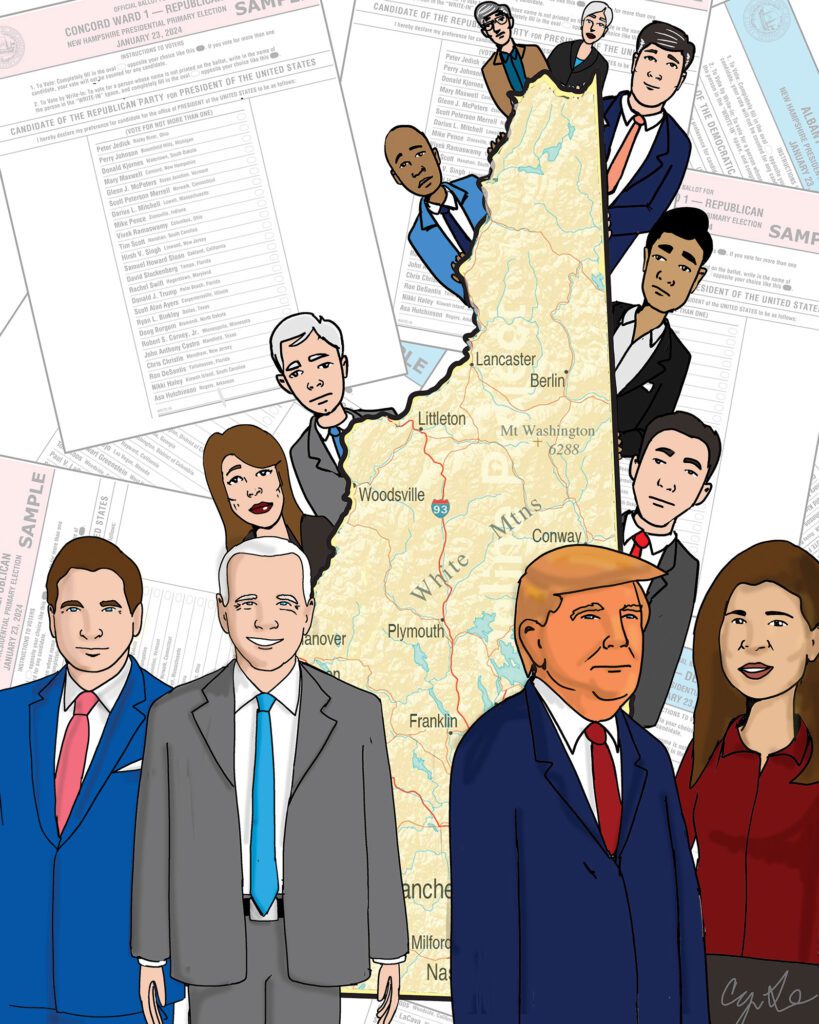
As this year’s presidential campaign heats up, New Hampshire is once again playing a significant role as the first state in the nation to run a presidential primary. As usual, the contest north of our border has winnowed the field and exposed candidates’ strengths and weaknesses. But whatever the final vote-counts show from the Granite State, Black voters must unite in making sure that the likely Republican nominee, former President Donald Trump, fails in his bid to regain the White House.
On President Biden’s side of the political aisle, the Democratic National Committee changed the first sanctioned U.S. presidential primary to South Carolina because of the Granite State’s lack of Black voters. But in keeping with New Hampshire’s independent spirit — and its own law — the state’s leaders defied the bid for change and held their primary first.
Biden, abiding by party rules, decided not to compete in the New Hampshire primary and had to rely on a write-in campaign run by supporters. This move set the stage for many lesser-known candidates to have their moment in the sun. Over 20 contenders entered the Democratic primary, including two professors, a sculptor, two entrepreneurs, rapper Paperboy Love Prince, and author Marianne Williamson, who ran in 2020.
But the most prominent candidate to challenge President Biden was Dean Phillips, a congressman from Minnesota. His pitch to New Hampshire voters told them not to write in Biden’s name because he “wrote you off.” Out on the stump, he hit at Biden over his age and long history in politics making him “too vulnerable” to attacks from the right. The long-shot congressman from the land of 10,000 Lakes also espoused core liberal values with stances promoting Medicare for all and $1,000 savings bond for all American-born children. In short, other than Biden’s age, there were few positions separating the liquor heir from the current president.
On the GOP side, the major story of the New Hampshire primary was a challenge to Trump’s hold on the Republican Party by Nikki Haley, the former South Carolina governor and Trump’s ambassador to the United Nations. With other major GOP contestants dropping out, she remained the ex-president’s only obstacle over the weekend’s final push.
Black voters took note last month when Haley seemed to stumble on the question of what caused the Civil War, failing to mention slavery in her answer. Instead, the former governor talked vaguely about personal freedoms and individual rights. Still, Haley could not use the word “slavery” despite a direct follow-up question that she attempted to evade by asking the audience member his position. She then asked, “What do you want me to say about slavery?” and moved on to another topic.
Once a national media backlash started, she backtracked, saying “of course” the Civil War was about slavery. Haley cannot seem to find her focal point as a woman of color in the new GOP, a party that promotes misogyny and white resentment. It still is clear that she is much more like a female version of The Donald, hopefully minus the illegality, gangsterism, and fascist tendencies Trump has exhibited in the recent past.
As a former news photographer, I spent many days up in New Hampshire covering many historic campaigns, and one thing is still true today: New Hampshire always represents its independent nature and live-free-or-die spirit, and its primary race still makes or breaks candidates for the highest office in the land.
While another 10 months remain in the presidential election season, it’s possible that the nominees will be effectively chosen by the time the last votes are counted in New Hampshire. The challenge before us in the run-up to November is clear: We as a nation must figure out a way to come together at a time when the far right is using division, fear tactics, and scapegoating to try to garner votes for former President Trump, despite his 92 indictments and blatant criminal activity. It is still being determined where and when the courts will weigh in and if they will ever rein in his attempt to receive immunity from prosecution for his many illegal actions when he was president. His claims of immunity stand in direct contradiction to all of our laws.
As we move forward, we should never lose the fact that we are a nation of laws, and a president is never immune to the laws of government. Our nation’s independence is not an excuse for ignorance; a criminal regaining the most powerful position in our country can never lead to a better nation.







